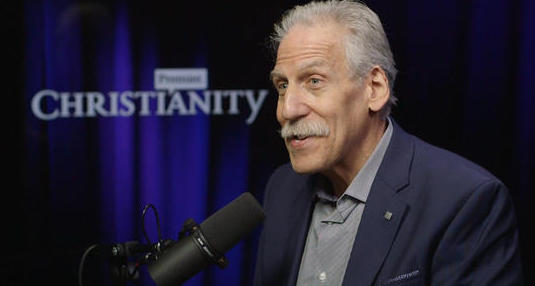In documenting WorldNetDaily columnist Michael Brown’s defense of new House speaker Michael Johnson, we noted that both are a part of the New Apostolic Reformation, a right-wing evangelical movement, and how he accuses NAR critics of not understanding what NAR is. Brown devoted his lengthy Dec. 4 column to expanding that argument, insisting that the critics’ NAR is not his NAR:
This article is not meant to provoke or insult or demean or antagonize or gaslight. Instead, it is meant to help readers understand why I continue to say that the “NAR” described by the critics does not exist.
Remember that I freely acknowledge the existence of the New Apostolic Reformation as articulated by Peter Wagner and, in certain ways, spearheaded by him.
I freely acknowledge that I have been a member and leader in the US Coalition of Apostolic Leaders (USCAL), but only after the name was changed from Apostles to Apostolic Leaders, which was subsequent to Dr. Wagner’s involvement.
I freely acknowledge that I believe in the ongoing ministry of apostles and prophets in the church, holding to the view that there have been apostles and prophets operating in the church throughout history, even if not called by those names.
I freely acknowledge that I am friends with men like Lou Engle, Randy Clark and Sid Roth.
I freely acknowledge that I am an unashamed Pentecostal-Charismatic, that I have spoken in tongues since Jan. 24, 1972, and that I will gladly debate any qualified leader or scholar on the continuation of the gifts of the Spirit.
Why, then, do I say that the “NAR” of the critics is a fiction?
I’ll do my best to explain.
He started off by noting a historian, Matthew D. Taylor, who he says “believes that there is a direct connection between the events of January 6 and the New Apostolic Reformation founded by Dr. Wagner.” He went on to claim that “Dr. Taylor has come to recognize that I myself am not part of NAR. He also recognizes that men like Randy Clark are not part of NAR. And, like me, he takes issue with the scholarly methodology of some of the principal critics of the wider ‘NAR,’ while acknowledging some nuggets of truth in their work, as I also do”:
In Dr. Taylor’s own words, if you search online for NAR, “You’ll find websites with literally thousands of names indexed of different Christian leaders who are supposedly part of ‘the NAR.’ … You will find writing about the New Apostolic Reformation that sounds like stuff out of a bad conspiracy novel – where NAR leaders are spookily manipulating political leaders like some sort of Charismatic Illuminati.”
He adds, “You will also find people, reputable people, journalists, scholars, people who’ve done their research, pushing back and saying, ‘Yes, there is such a thing as the NAR’ and they can marshal a lot of evidence, much of it coming from Peter Wagner’s writing and associations.”
It is the former “NAR” whose existence I deny, the NAR that has become the charismatic boogeyman lurking behind every controversial tree, the global network allegedly numbering hundreds of millions of Christians, poised to take over the world. It is the “NAR” that is described so differently by different critics that many of the descriptions are mutually contradictory.
He went on to cite another critic of NAR and claim that its defintions of NAR are not what he considers NAR to be — but it comes off as pedantically denying any criticism of NAR as invalid because he simply complains about others’ defintions of NAR without trying to examine where those definitions come from. After all, those critics are drawing upon actual writings and statements whose existence Brown does not deny. He concluded:
Why do I deny the existence of “NAR” when I so freely affirm apostolic ministry today, when I recognize the existence of Dr. Wagner’s NAR, and when I am an unashamed Pentecostal-Charismatic?
It is because the “NAR” of the critics is a fiction, and a dangerous one at that. For that reason, my appeal remains the same.
Ditch the unhelpful terminology, give up the exaggerated, fear-mongering, click-bait posts, and focus on actual abuses and problems. Then we can get some constructive work done for the glory of God and the good of His people.
Despite his opening claim that he wasn’t trying to gaslight people, that’s pretty much what he’s trying to do here. More accurately, he’s engaging in a version of the “no true Scotsman” fallacy, insisting that the definitions others have of NAR can’t possibly be true because they don’t apply to his own personal defintion of NAR. Yet he still recognizes the power of NAR branding enough, and not consider it tainted, to choose to remain affiliated with it and not try to redefine his beliefs under another term.
